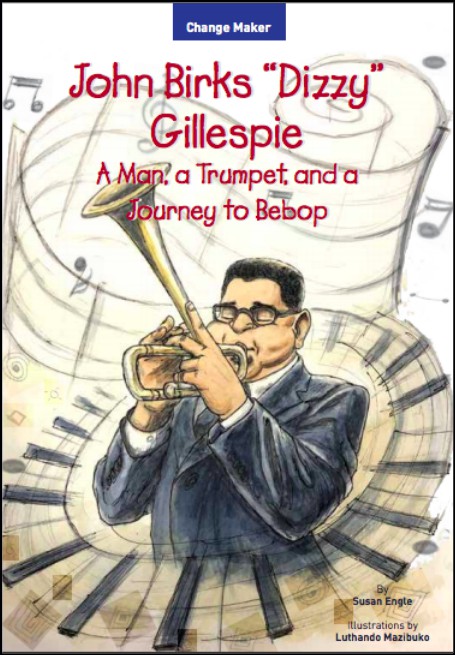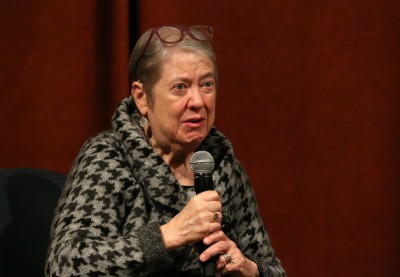Highlighting Australia
- As a proudly Australian initiative, we’re excited to showcase a collection of Australian stories, music, tributes and more.

Join activities, celebrations, study groups, spiritual empowerment and education programs for young people, and more.
Baha’i beliefs address essential spiritual themes for humanity’s collective and individual advancement. Learn more about these and more.

Baha’is see the young as the most precious treasure a community can possess. In them are the promise and guarantee of the future. Yet, in order for this promise to be realised, children need to receive spiritual nourishment, such as can be found in the children’s classes happening all around the world.
Across Australia young people are participating in an endeavour that strives to give them a voice in today’s society. Through the Junior Youth Spiritual Empowerment Program, these junior youth groups are enhancing their power of expression, sharpening their spiritual perception, analysing the constructive and destructive forces of society and changing their surroundings through the service projects.

Bellwood Press has created a series of books for junior youth and young readers called the Change Maker series which tells the true stories of individuals who worked to bring about positive social change. So far the series includes three titles: Robert Sengstacke Abbott: A Man, a Paper, and a Parade; John Birks “Dizzy” Gillespie: A Man, a Trumpet, and a Journey to Bebop; and Richard St. Barbe Baker: Child of the Trees.
Susan Engle authored the first two titles, and I wanted to hear more from her about the book about Dizzy Gillespie (you may also remember Susan from when she shared all about her enchanting tiny books). Susan is a delight and I hope you enjoy this conversation:
Baha’i Blog: Can you tell us a little bit about who Dizzy Gillespie was?
If you had lived in his neighborhood when he was a child, you might have heard his family and neighbors calling out, using his first two names as is a southern tradition, “John Birks, sit a spell, why don’t you?” He was constantly on the move. When he was in elementary school, he was provided with a trombone for a small school band. From then on, he channeled most of his energy into playing music. Since his arms were too short to play all the notes on trombone, he would often borrow a neighbor’s trumpet, taking turns with Brother Harrington, practicing for hours at a time. As he grew and became better and better, finally leaving South Carolina for Philadelphia and New York City in his teens, he had years of playing and working out sounds and keys for trumpet tunes under his belt.
Trying out for the Freddie Fairfax Band when he was about 18, one of the band members said, “That dizzy little cat’s from down South.” The nickname “Dizzy” stuck. By the time he had helped bring about a new style of jazz called Bebop, performed for more than one President of the United States, traveled around the world for the State Department, and recorded dozens of records, Dizzy was well-known and loved—not only by many of his fellow musicians, but by jazz fans across the U.S. and around the world. He had many official and unofficial titles, including “King of the Trumpet,” “Ambassador of Jazz,” and “Diz the Wiz.” By the end of his life, he had also received many awards including 14 honorary degrees, a Lifetime Achievement Award from the Grammys, and the Kennedy Center Honors. He even has a star on the Walk of Fame in Hollywood, California.
Baha’i Blog: What was the inspiration for writing this book?
The series of middle school biographies published by Bellwood Press, called Change Makers, tells the tales of Baha’is who have made a major contribution to the wider world. Dizzy Gillespie was a natural for the series, given the breadth of his influence in music. A biography on a website created by the National Endowment for the Arts states, “John Birks ‘Dizzy’ Gillespie’s effect on jazz cannot be overstated: his trumpet playing influenced every player who came after him, his compositions have become part of the jazz canon, and his bands have included some of the most significant names in the business.”1
Baha’i Blog: Who is its target audience?
The official evaluation of reading level states 8-12 years, but I’ve been told that many age groups have enjoyed either hearing the book read aloud or reading it to themselves—even adults. If a person doesn’t mind some glorious illustrations by Luthando Mazibuko, that is, (I write with a smile). It seems to me that illustrations are always a grand accompaniment to words, no matter what age a person may be.
Baha’i Blog: Was there something that surprised you when you wrote this book?
When I was young, I had heard briefly about Dizzy’s campaign for President of the United States when he ran against Barry Goldwater. This was in the decade before he had been introduced to the Baha’i Faith. It started out as a pipe dream—finding a way to have a positive effect on the nation through more than music. With his great sense of humor, he introduced the concept of changing the name of the White House to the Blues House, if he were elected. But his campaign also laid out serious ideas that Dizzy supported: civil rights, equal opportunity for jobs, an end to the war against Vietnam, and more federal subsidies for the arts, among others. We have since learned that having a President who is African American does not solve issues of racism in this country, but Dizzy thought it would be worth a try.

I also loved learning about his introduction and acceptance of Baha’u’llah as the most recent Messenger of God to be gifted to our planet. Dizzy loved the concept of Progressive Revelation. It made perfect sense to him that human society has grown and changed from tribes to city states to nations, needing new social boundaries through the centuries. Every Messenger brought laws to address an ever-changing world. Now that humanity is able to see and understand the oneness of our planet—that no borders or barriers are visible on Earth when we see it from space—we can understand that these artificial divisions were not created by God for our world, only by people. This new world requires that we have guidance to deal with a world of various cultures coming together to appreciate and celebrate the diversity we have, to learn to live together in peace. For Dizzy, this gradual education and development of humankind is also reflected in the development of music over time. Every great musician builds on the skills and discoveries of the musicians that came before. He often introduced the Baha’i Faith in his interviews, using the concept of the progressive development of jazz as an analogy for the same development of religion.
Baha’i Blog: Thank you so much, Susan, for taking the time to share this with us!
You can purchase John Birks “Dizzy” Gillespie: A Man, a Trumpet, and a Journey to Bebop here on Amazon. You can also buy it from Baha’i distribution services such as Bahaibooks.com.au in Australia.
You can find out more about Susan’s work on IambicNana.com, where you’ll discover poetry available to parents and teachers, free to download and use in children’s classes and at bedtime. There are even short poems that can be used in Holy Day celebrations and devotions, incorporating the arts into community-building efforts.
"*" indicates required fields

We recognise their continuing connection to land, waters and community. We pay our respects to Aboriginal and Torres Strait Islander people and their cultures; and to elders both past and present.
The views expressed in our content reflect individual perspectives and do not represent authoritative views of the Baha’i Faith.

Visit the site of the
Australian Baha’i Community
and the Baha’i Faith Worldwide
Notifications
I recall meeting Dizzy in London both at Rutland Gate and then accepting an invitation to hear him play at Ronnie Scotts.
Sweet memories of a sweet talented man.
Arthur
Arthur Winner (February 2, 2021 at 6:27 AM)
What a wonderful interview. Thank you for shining a light on our Bellwood Press “Change Maker” Series. Wanted to also note that this particular book is the recipient of a five-star review from Readers’ Favorite Book Awards and is available in print and eBook formats.
We will very soon release a fourth title in the series featuring Hazel Scott, a champion for civil and women’s rights. Coincidentally, she was introduced to the Baha’i Faith by … Dizzy Gillespie!
As always, these inspiring books are available at BahaiBookstore.com and other booksellers.
Baha'i Publishing Trust (February 2, 2021 at 3:19 PM)